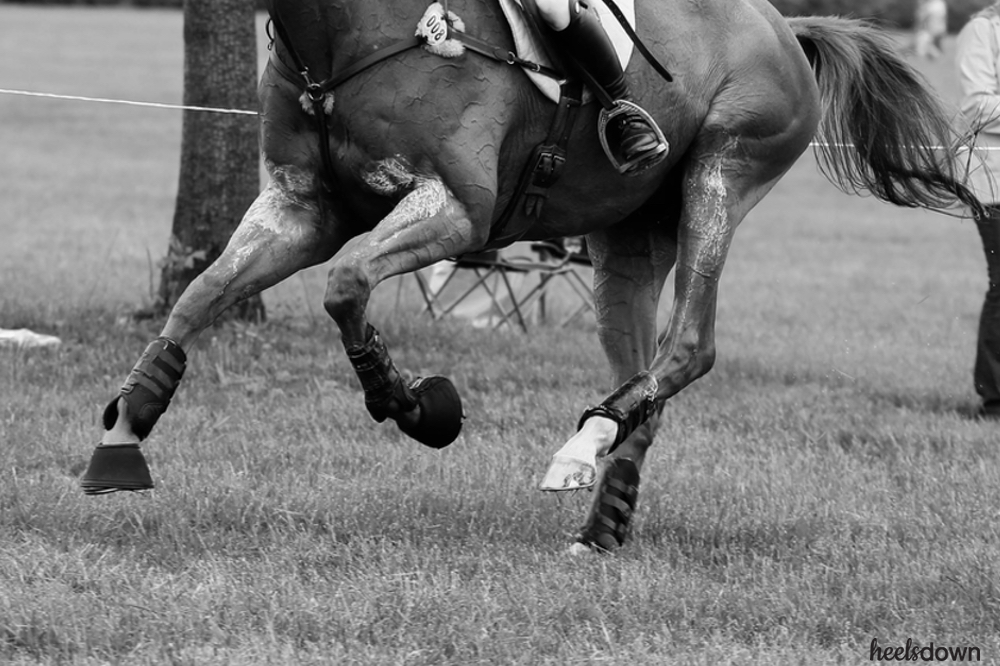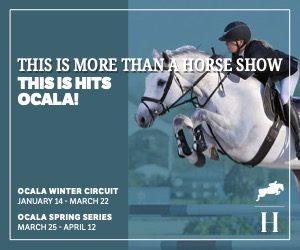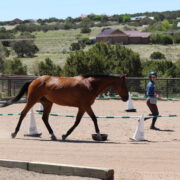Are We Beating Up Our Horses?

Max Corcoran is the president elect of the United States Eventing Association and has groomed internationally at the highest levels of equestrian sport for nearly two decades. She worked for the O’Connor Event Team for 11 years and has served at multiple Olympic Games, World Championships, Pan American Games and countless CCIs across the U.S. and Europe. She now lives in Ocala, Fla.
By Max Corcoran
I think the U.S. is pretty lucky. We have incredible resources for riders and we’ve got new leadership. But people here have a lack of respect for themselves and others in an odd way. People aren’t giving themselves enough credit in some ways, and then too much in others.
The people who are working really hard are getting there. And that should make the top-level U.S. riders worried. The people who are already “up there” are about to get eaten up by this next generation.
Like This Story? Try: Max Corcoran – How Much Is Too Much?
I’m talking about people like Mia Farley or Hallie Coon, who are young and working hard and just haven’t found the right horse yet. Then there are just exceptional riders like Sharon White, who has such an incredible partnership with her horse. And Liz Halliday-Sharp, who has been winning everything lately but has yet to be on a team. These are talented people who just haven’t been tapped into.
But the source of our biggest problems drill down to the basics. There are plenty of people who know how to ride, but lack basic horsemanship skills. We have good horses, but there is a reason why they don’t last very long.
You can have all the frangible tech you want, all the correct conformation you want, but if you don’t know how to take care of the horse, there’s no horse to lesson on.
When you look at a place like England, at the high performance level, they take care of themselves and the horses as athletes. They straighten themselves out, which straightens the horses out. It’s all physiotherapy and diagnostics stuff. They treat proactively instead of reactively.
That’s why the horses last longer in countries like that. Look at Michael Jung, he comes back and wins championship after championship on the same horse, and then goes and crosses over into the grand prix show jumping arena. Sam [La Biosthetique–Sam FBW] did four championships in a row. But the horses here, you see them in one championship and never again because they are so beat up.
Read This Next: Common Post-Cross Country Mistakes
Look at our horses compared to the Europeans’ and the Australians’. The first American horse to come back and compete at a second championship since 2010 was Donner, (a 2003 Thoroughbred ridden by Lynn Symansky). No other American horse has come back for more than one championship, or even come back for a career after that. We never see these horses again. That’s pretty outrageous to me.
This is true especially in horses coming up the levels, too. So many of them don’t ever get to the top levels. I’m talking about beautiful young horses with so much potential – but by the time they get to Intermediate, they’re taping the horse back together.
No other American horse has come back for more than one championship, or even come back for a career after that. We never see these horses again. That’s pretty outrageous to me.
The problem really comes down to the mentality of the industry in this country. Now that I’m president elect, what I’m really going to focus on at the USEA is instilling those values of horsemanship again. The horses must come first. The riding second. You can have all the frangible technology you want, all the correct conformation you want, but if you don’t know how to take care of the horse, there’s no horse to lesson on.

Part of the problem is that people are learning how to ride later in life. So maybe they didn’t grow up around horses and don’t have the second nature to it like some of us. The kids who are in the barns now are pressured to “hurry up, let’s go” the second they’re done in the tack so they can get to swim practice or hockey or whatever else. They’re not hanging out in the barn, they’re onto the next thing. That’s no one’s fault, it’s just society. But they’re not learning. How do we fix that?
No one is taking the time to explain what the horse is eating and why, or saddle fit, or if the noseband is on correctly.
The instructor certification program for USEA didn’t have horsemanship topics in it. We’re restructuring that so it does. A lot of people who are teaching lessons don’t have time to focus on the horsemanship. They’re trying to pay a mortgage, so it’s constantly, “ok, next. Ok, next.” So no one is taking the time to explain what the horse is eating and why, or saddle fit, or if the noseband is on correctly.
It’s time to break the mold. The way to do that is to build a better education for our riders. Adult amateurs are thriving in this sport. They are so hungry for knowledge. We just need to get people to start thinking about this stuff more often, because it’s so important.


